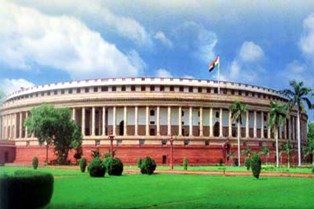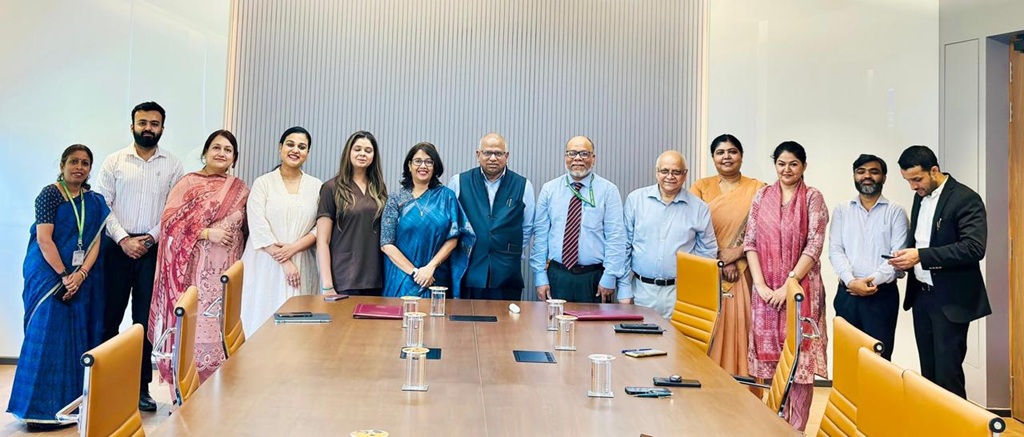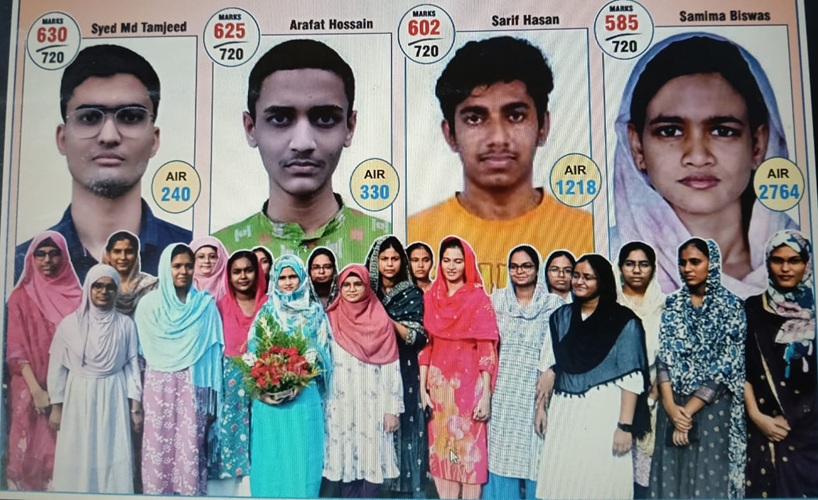(Excerpted from Dr. Javed Jamil’s “The Devil of Economic Fundamentalism” published in 1999.)
In the on-going control of the affairs by the forces of economics in the history of their rise in the world, the widening gulf between religion and state had put economic fundamentalism on the road to progress. The big business however realised that the policies of the state were not in tune with their requirement. They felt that the monarchy, which was almost ubiquitous, was not easily manoeuvrable. Kings derived their sovereignty, not from the masses, but from a constitution that vested in them un-shared power in their domains. For the perpetuation of their rule, they depended on a strong military that, generally, remained loyal to the palace. The rich from among the masses longed for and, often succeeded in, becoming minions of the members of the ruling class. Among these elite were mainly land lords and big farmers; the merchants were fewer among the favourite. Whatever relationship the business class had with the rulers or their officers, was virtually unilateral; the businessman’s objective was limited to evading their wrath; for the smooth continuance of their merchandise, they were more than eager to pay to the treasury whatever taxes were imposed on them by the government. They were not in a position to influence the official policies, because there was no way to effect change of power. This could occur only if the army revolted, or an invader ransacked the kingdom, or there was a popular uprise. For uninhibited growth of business, however, it was essential that the policies of the government were regularly readjusted in accordance with the emerging scenario. To effect such changes at regular intervals was highly improbable, unless the rulers had an open or secret alliance with the business-world. This could take place only if the kings were made or unmade with the direct or indirect assistance of the market-forces. The first and foremost essential for achieving this goal was total transformation and transubstantiation of the existing political ideology into one that would endow the market with substantial and recurring opportunities to manipulate and manoeuvre, even mastermind the political administration.
The idea of democracy was not unknown to the learned. Several political theories had in the past been propounded by diverse political pundits. Plato had already suggested the formation of a city-state that envisaged equal rights for the citizens. There were also some practical evidences to support that the concept of democracy was not altogether new. One such example was the period of the four “Pious Caliphs” after the departure of Mohammed, the Prophet of Islam. The Caliphs, during their short, but historically and theologically most productive period of Islam, were chosen by the representatives of the people, and after being elected, they would sit in the public mosque for receivingbiat, the expression of allegiance by the common people for the new ruler; and it was only after the acceptance by the majority of the people of the capital city and the representatives of the distantly located areas that the Caliph would ascend the throne. The people had the right to take back their allegiance, and the government was run with the guidance of a Consultative Committee, constituted of the most pious, learned and able representatives of the people. The political experts of the West, under the impact of the ongoing industrialisation, again felt the need to initiate a movement for the establishment of democracy which they described as the government of the people, for the people and by the people. The slogan of people’s rule was indeed fascinating. It cannot be said with certainty whether the onset of the movement of democracy had direct involvement or not of the economic fundamentalists. But sooner or later, they were able to fathom the extraordinary potential in the on-rushing political developments for the growth of their ideology; a system other than the people’s government was now incomprehensible; for a government that would be periodically changed would be easily manoeuvrable. The political hierarchy would not only be far more accessible than the monarchs; it would also be in no position to ignore the interests of the business-world; for the politicians required free flow of money for electioneering and other political functions. The manufacturers and traders would not mind parting with a small loaf in hope of greater returns. The movement for democracy could not have been successful, if the dons of the world of business had not been kind on it.
The history soon witnessed the birth of different forms of democratic systems. Little wonder that the democracies prospered primarily in those lands where the industrialisation was in full swing. Multiple-party democracy was the obvious choice; for, in party-less democracy, the individual leaders might have ignored the interests of the market as soon as they seized the reins of power. On the other hand, the parties had long term interests, and it was more improbable for the parties to forget the pre-election promises.
Though the avowed goal of democracy has been to fulfil the long cherished aspirations of the people, and to work for their all-round betterment, it has miserably failed in guarding itself against the damaging intrigues of the vested interests, particularly the industrialists. The power can be seized only at the hustings; the big business either fields its own candidates, or more often, it supports a political party that is expected to best serve its interests. Any meaningful electioneering requires not only huge funds, but also other extreme methods including the use of muscle-power, facilitating the entry of criminals. Thus a permanent nexus has developed between politics, organised crime and industry. This is true of almost all the big democracies of the present world. The bracket has extended itself to include the bureaucracy, administration and media. Elections are regularly held and the people can exercise their right to franchise. But the issues on which the elections are contested are usually such as suit the game-plan of the economic fundamentalists. The media creates and uncreates issues, and the masses are beguilingly reconditioned into thinking the way the media thinks. Politics has become highly expensive and hazardous. The word “moral” has ceased to exist in the political lexicon. Anyone with semblance of conscience does not dare to venture into the political arena that has become a playground for the rich and the criminals. The upright and educated have in fact developed repugnance for it. Not only the politicians have harmonious relations with the criminals, the criminals have themselves developed fascination for politics; in the absence of any strict legal criteria for candidates, the undesirable elements gain a sort of legitimacy, once they enter the election fray after joining one of the parties that are expected to fare well at hustings. It is much more tedious for an intellectual or social activist to convince the party stalwarts of his claim for party ticket; the criminals’ wish to become people’s representatives is expressly granted. Once they enter the Parliament or the assemblies, they acquire a distinct halo of respectability and esteem; big functions are organised to shower encomia on them for their “services” to the nation. After a few years of politicking, they become veterans, and ministerial chairs are often occupied by them. The ongoing politicisation of criminals breeds criminalisation of politics, and the criminalisation of politics enhances the prospects of the the economic fundamentalists.
Had democracy been properly put into practice, it might have been a sacred blessing for the common people. It might have guaranteed them a lion’s share in power, and their rightful needs and aspirations might have been truly realised. It still holds true that they can successfully overthrow any government out of power. It is therefore mandatory for a party in power to keep the masses in good humour. But, in reality, the remote controls of almost all governments remain in the hands of the big business. Through media that blossom under its auspices, it succeeds in enthralling the imaginations of the people. The disinformation campaign in the media is too effective to permit them independent thinking and judgment. Consequently, the real issues hardly surface into prominence, and the minor, insignificant and frivolous matters are made to appear as big issues that do not haunt but hunt the mind of the common-man. The political bigwigs, when they ascend a public rostrum to deliver speeches that usually have plenty of rhetoric, cry their hearts out for the poor and the downtrodden. But in the comforts of their ministerial offices, they minister only to their industrialist benefactors, and their beneficences are gifted back multifold through convenient adjustments in policies and rules and regulations, grants of licences and ministerial orders for their products or services. All through their terms, the problems of the masses never bother them; but as the expiry of their term and the new elections approach, they again revert back to their favourite theme: concern for the poor. A few schemes favouring, though marginally, and often only on the paper, are announced with great media hype. If they return to power, they are back in paradise; if not, still, they have great many privileges to enjoy throughout their lives. And, of course, as opposition, they have now more opportunities to stand on the rostrum, and harangue about the necessity to raise the standards of life of the poor; for that to happen, the best course for the public is to bring them back in the next election.
Thus, in economic fundamentalism can be traced the roots of what can be termed political fundamentalism that seeks to use all possible means — moral or immoral, to come to or stay in the saddles of power. Communalism that so ferociously struck India in the eighties the and continues to sway the mass hysteria in the nineties, is, in fact, product of the political and not the religious fundamentalism, which has usually been the victim of opprobrium. If the religion has been misused, it is none of the religion’s fault; the political fundamentalists have not missed a single opportunity for their elevation in the power-game, and have unabashedly used the religious, linguistic, casteist and other parochial sentiments. Communalism, regionalism, linguism, racism — all are products of the political fundamentalism, and aggressive nationalism is its worst form. Patriotism is a benign and natural love for one’s motherland; but, nationalism is based on the concept of supremacy of one’s nation over the others, and an attempt to dominate over them. When Nationalism ascends the ladder, it gets transformed into colonialism, and gives rise to block politics at he international level. The majority of wars and separatist movements are the outcome of nationalistic fervour, based on one of the sentiments with which the people of a particular area identify them. No wonder that the geographical boundaries and international borders continue to change at regular intervals. The obvious outcome is the periodic emergence of new, sovereign states, though, occasionally two or more nations may coalesce to form a bigger nation.
Democracy literally means ‘a government by the people, of the people and for the people’. In truth it is a corporatocracy, the government of the corporate, by the corporate and for the corporate. The result is that in most of the cases it is not the best among the people that ascend the ladder of politics but the ones chosen by the corporate, who often prove to be the worst for the people. The irony is that it is the people who appear to be voting them to power; they have no option but to elect from among those chosen by their rich masters.
It is also an open question why the communal strife in India reached its zenith in the late eighties and early nineties; did the economic fundamentalists have any role to play in these developments? The possibility cannot be ruled out that, with the fall of Soviet Empire, and the emergence of globalisation, the transition inIndia from the closed to the open market could not have been easily achieved, if the attention of the people and the politicians had not been diverted to other sentimental issues. And in India, with the ghost of partition always ready to strike back, nothing could have been as engaging for the masses as HIndu-Muslim rivalry. Once the privatisation was on strong footing, communalism started tapering down. Even the leftist organisations that could have become the biggest stumbling block in the economic proselytisation, had no time left out of their total involvement in the campaign against communalism, to devote to what was happening at the economic front. Their historical failure to stall privatisation and globalisation of Indian market must be a subject of analysis for the social and political pundits. The economic transformation has now reached a stage that, even if the centrist and leftist parties have a rethinking, it would be a Herculean task for them to stem the tide.
The rise of nationalistic and communal movements is not always in favour of the market, because the business may suffer due to continuous turmoils if these movements continue. Actually, it often happens that the interests of different industries mutually clash. The rivalry between these opposing interests has a significant bearing on the political scenario at the national or international level. While the majority of consumer industries would prefer minimisation of armed conflicts at all levels, the arms industry thrives on international disputes and recurrent terrorism. The manufacturers of arms have, therefore, vested interests in supporting nationalist movements all over the world; in political fundamentalists, they find cordial partners for preservation of their activities. The arms industries are mostly owned by the governments. The sale of costly weapons, open or clandestine, brings huge earnings and the governments, often succeed in averting domestic financial crises. Battles here and there, and tensions over border issues, which often escalate to burst into wars, keep the arms flowing without affecting for too long the fortune of other industries.
* Dr Javed Jamil is a thinker and writer with over a dozen books including his latest, “Muslims Most Civilised, Yet Not Enough” and “Muslim Vision of Secular India: Destination & Road-map”. Other works include “The Devil of Economic Fundamentalism”, “The Essence of the Divine Verses”, “The Killer Sex”, “Islam means Peace” and “Rediscovering the Universe”. He can be contacted atdoctorforu123@yahoo.com or 91-8130340339. https://twitter.com/javedjamil






0 Comments